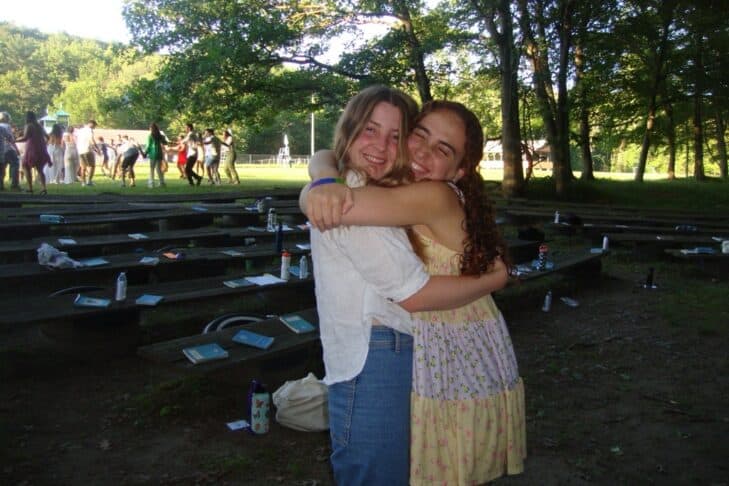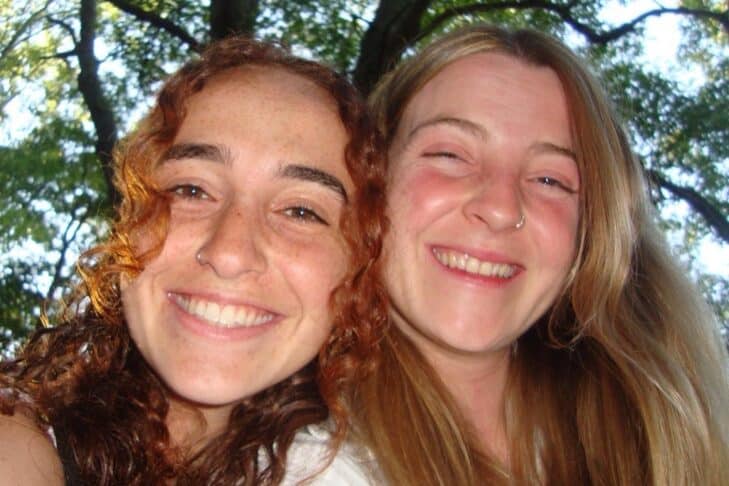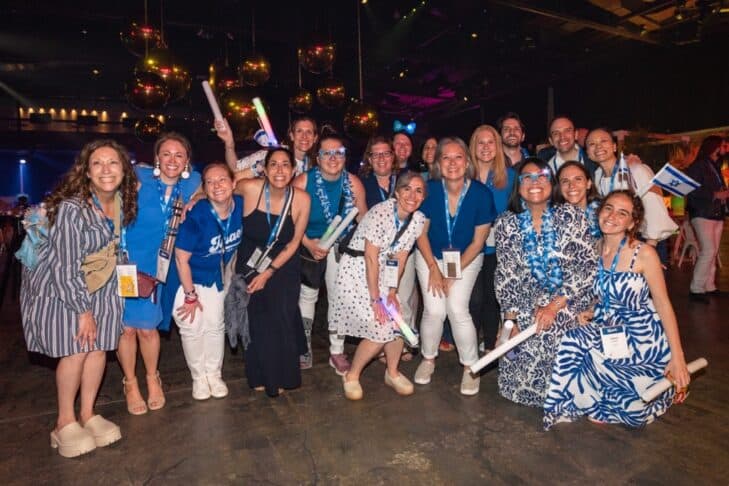When the siren sounds across Israel, it’s deafening, yet everything is still and quiet. Everyone stops what they’re doing and people driving on the highway get out of their cars. The roads are still, households are still, silence sweeps the nation and all that’s left is the sound of the siren.
The siren system is the same system used to warn for rockets. On Yom HaShoah, or Holocaust Remembrance Day, and Yom HaZikaron, the sirens sound twice, for one minute at 8 p.m. and the next day for two minutes at 11 a.m. For those two minutes, the whole country stands up in silence to commemorate the lives lost in Israel’s wars and terror attacks. Like Jewish holidays and national holidays, Yom HaZikaron starts at sundown and ends at sundown; Yom HaAtzma’ut immediately follows it. In stark contrast to Yom HaZikaron, Yom HaAtzma’ut, Israel’s Independence Day, is extremely festive, with people out dancing in the street all night and waving Israeli flags.
My name is Tamar Yaniv. I’m 25 years old and living in Boston. I was born in Puerto Rico to a Puerto Rican Sephardic mother and an Israeli Ashkenazi father. My great-grandparents survived the Holocaust in Poland and the rest of them were persecuted from their homes in Egypt, Turkey, Poland, Morocco and Bulgaria. I grew up in a proud Jewish community in Miami and spent a couple of years living in Israel as a kid. My childhood had countless opportunities for connection with Israel, which has shaped my passion for sharing what I love about Israel with Jews in the Diaspora.
Last year, I helped plan and staff a trip to Israel with CJP called Spark to celebrate Israel’s 75th Independence Day. This trip became an incredibly meaningful part of my relationship with Israel. Through Spark, CJP brought roughly 300 people to Israel. Being in Israel with such a diverse group ranging in all ages and professions was different from any of my other experiences. It provided a unique lens through which I could see parts of Israel in a new light.
During Spark I walked to Shabbat services on Saturday morning with a participant in Jerusalem. During our walk, he told me about his conversion journey. He had such a great commitment to Judaism and had learned so much about Israel. A year later, he is still one of my good friends, and we share this journey together.
As someone who has lived in Israel and was born to an Israeli parent, I’m used to the whirlwind of emotions one feels during the time of Yom HaZikaron and Yom HaAtzma’ut. Going through these emotions with the Spark participants gave me a renewed sense for how special and meaningful this part of being an Israeli is. Despite the tangible grief and loss felt everywhere, there is also an immense unity and joy that is indescribable. When I went on Spark I expected to show people in my community these special parts of Israel, but I didn’t expect to be so impacted by seeing it through the eyes of so many diverse and unique people. The opportunity to share this sense of unity with my community here in Boston was deeply special.
Every year in Israel on Yom HaZikaron, people make huge efforts to tell the stories of those who have lost their lives through ceremonies, displays, songs, dance and more. Most Israelis know someone who has died in a terrorist attack or in war, but I, thankfully, never knew anyone personally. This year is different. This year and for the rest of my life, I will remember my beautiful friend Gili Adar, z”l, on this day. Gili had the best smile and she was always giggling, so much so that friends called her “the sun.” Gili was tragically murdered at the Nova music festival on Oct. 7, along with many other dancing festival-goers.
Last year’s Yom HaZikaron I was struck by how meaningful it was to experience it with my Jewish community from Boston. This year, I am, for the first time, experiencing Yom HaZikaron the way many Israelis do, with a clear picture of a loved one fixed in my mind. This year, Yom HaZikaron and Yom HaAtzma’ut mean something profoundly different to our whole community. We are all grappling with how to grieve and celebrate when many of our people are still not free.
But as Rabbi Marc Baker, president and CEO of CJP, shared at a staff meeting in the name of a good friend of his, “We need to make the good times happen, because the bad times happen on their own.” And so, this year, we’ll cry harder than we ever did and appreciate the country that we still have in whatever capacity that may be. And, most important, we’ll fight to bring our people home because we need our family back home now.
This post has been contributed by a third party. The opinions, facts and any media content are presented solely by the author, and JewishBoston assumes no responsibility for them. Want to add your voice to the conversation? Publish your own post here. MORE





